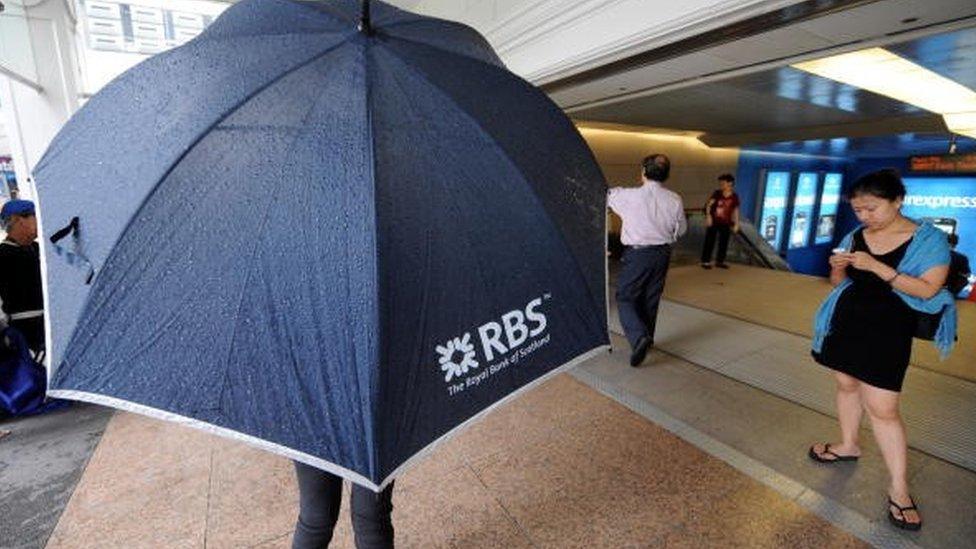The weird world of negative interest rates
- Published
- comments

The idea of paying to have money in the bank seems unfair, and frankly just plain weird. It is indeed a strange idea for strange economic times. Let me take a moment to explain why anyone would want to do this.
Banks have bank accounts of their own with the central bank. In the UK's case - that is the Bank of England. For countries that use the euro it's the European Central Bank (ECB).
The central bank pays their banks interest for any spare money they have got on deposit with it. By lowering interest rates, the central bank makes it less attractive to park that money on deposit and encourages the banks to do something more profitable with it - like lend it to individuals and businesses to spend - thus boosting the economy.
When banks are really reluctant to lend, a bigger stick is required. And so in Europe, the ECB has introduced negative rates - which doesn't just encourage lending but punishes the banks if they don't. If there isn't anyone who wants to borrow that money, the banks end up paying the penalty - and that cost could get passed on to customers.
That is what RBS and NatWest are saying could happen here if the Bank of England cuts rates from the current 0.5% to below zero. That's quite a lot of caveats and why it is very unlikely to happen anytime soon.
Bank of England governor Mark Carney has gone on the record saying he doesn't believe negative interest rates work, precisely because they punish banks, making them weaker and can pass on additional costs to customers, which in turn makes the economy weaker.
The real story in RBS and NatWest's message is the rise in the cost of business banking by an average of £8 per month. RBS and NatWest have around 1.3 million business customers, as they have traditionally offered cheaper business banking than some of their rivals.
In a world where they can't make any money on those deposits themselves, they are having to find income elsewhere. The business of banking is pretty simple. You pay interest on deposits at one rate and you lend it out at a higher rate. When interest rates are this low, the difference between those two rates gets squashed and so do the banks.
This move by RBS and NatWest is the sound of the banking pips squeaking.